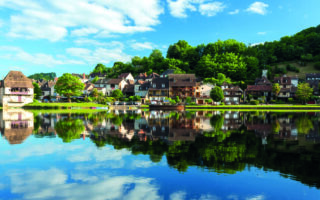Leaseback – an overview

A better alternative to timeshare
[IMAGE-MISSING]A leaseback investment is an arrangement where you buy a house or a flat and then grant a company the right to use it for short-term tourist rentals.
‘Residence de Tourisme’, or ‘Leaseback’ schemes were originally introduced by the French Government to try to increase the quantity of holiday accommodation available in tourist hot-spots, in order to cater for more tourists and boost the tourist revenues of France. The popularity of the schemes has not gone unnoticed by developers and international real-estate companies, so it is no surprise that schemes have started to pop up in Spain, Italy, other Mediterranean countries and even in places as far away as Goa.
In France, only approved (government-bonded) companies can offer leaseback schemes and those that do are usually subsidiaries of major French companies. There is only a limited amount of property available at any one time under these schemes.
Leaseback schemes allow you to buy a French holiday home or investment property that has been given ‘Residence de Tourisme’ status and then lease it back to the developer or a holiday rentals company (generally for nine years), which typically secures you a contractually guaranteed rental income (indexed to construction costs) of between 3% and 7% of the purchase price. In some cases, other contracts may stipulate additional payments, over and above the guaranteed income level, such as a payment calculated according to the building’s occupancy and the size of the individual property.
Companies offering leaseback programs are usually substantial corporations and the rental guarantee from them is very much worth having. The details for these programs vary from property to property, but typically, the contract will state that the management company pays all expenses in relation to the property – rates, water, and electricity charges, community fees, repairs and replacements, etc. They are also required to return the property to you in the same condition in which you purchased it.
Another major incentive is that you are also eligible for a substantial discount to the market value of the property, which effectively means that you don’t have to pay the 19.6% VAT (or TVA as it is known in France) that normally applies to all new property. Be aware, however, that occasionally the buying price that you are quoted is with the VAT refund already taken off.
At the end of the lease period, the property will be returned to you (as the freehold owner) in a good condition, though there will normally be provision made to renew the lease for another period of time if both parties so wish.
Leaseback properties usually have options for you to use the property for a number of weeks per year. Each development has its own usage allowances built into the deal, sometimes with more than one option available. You may get a fixed amount of usage at any time of the year or in specific seasons, or you may ‘lose’ a percentage of your rental income according to how many weeks you take and when – different developments will have their own definition of High, Medium and Low season weeks.
At the time of your purchase you would define how many weeks you wanted to keep for your own use, normally zero to six weeks dependent upon each scheme. There is often some flexibility and you may be able to change your usage pattern from year to year. Some developers also allow you to use your ‘free’ weeks at other resorts they manage, which can be a great bonus.
However do bear in mind that your guaranteed rate of return will most likely be lower if you have a large number of free weeks per year, compared to what it could be if you had fewer or no free weeks per year.
You have first choice of which weeks to spend at the property, and will be sent a form at the beginning of each year to allow you to request your preferred weeks.
Many of these property developments include pools which can be accessed free of charge. Other facilities that a development may have, such as a gym or health spa, may be free, or you may be charged for their use. During the ‘off-season’ periods, although the property can be used, the extra facilities may not be available.
In order for the management company to guarantee a good rental income for the entire lease period (at least nine years) it is vital that the development is in a high-demand holiday location with good facilities, so ensure you consider the location and demand for short-term rental properties in your chosen area as well as you would if you were going to be letting the property yourself. Also, bear in mind that leasebacks are often available in places where there is likely to be considerable property appreciation over the period of the lease: this can substantially increase your investment returns if your choose the right property.
Leaseback schemes have nothing to do with timeshare, where you are allocated specific weeks use of a property over a set number of years and once the timeshare term comes to an end, you own nothing. In contrast, the property under the leaseback scheme is yours from day one. It is registered in your name in the French land registry. You are merely allowing someone else to use your property for most of the year in return for a cash payment.
Article reproduced by permission of www.themovechannel.com
Share to: Facebook Twitter LinkedIn Email
More in health, holiday accommodation, investment, land, renovation, tourism, work
By FrenchEntrée
Leave a reply
Your email address will not be published. Required fields are marked *



